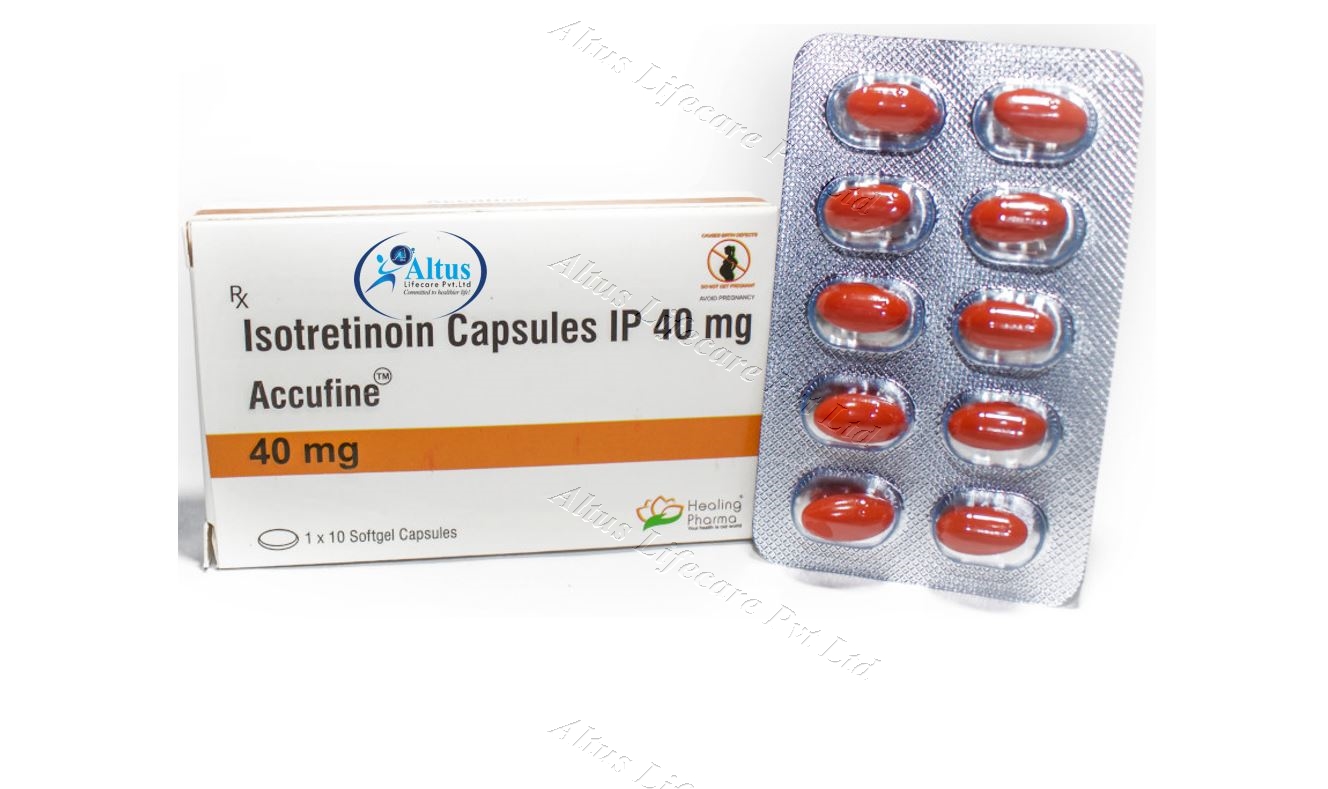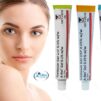

Acne can be a frustrating and confidence-diminishing skin condition. Thankfully, there are various treatment options available, and one such effective solution is isotretinoin capsules. In this article, we will delve into what isotretinoin is, how it works, its common uses, benefits, potential side effects, and much more. So, if you’re looking for comprehensive information about isotretinoin capsules, keep reading.
Isotretinoin Capsules: A Powerful Solution for Clear Skin
Introduction to Isotretinoin
Isotretinoin is a medication primarily used in the treatment of severe acne. It belongs to a class of drugs known as retinoids and is derived from vitamin A. Isotretinoin works by reducing the production of oil in the skin, unclogging pores, and preventing the formation of acne lesions. It is available in capsule form and is usually taken orally.
How Do Isotretinoin Capsules Work?

Isotretinoin works by targeting multiple factors that contribute to acne development. It reduces sebum production, inhibits the growth of acne-causing bacteria, and regulates the shedding of skin cells to prevent clogged pores. Additionally, isotretinoin has anti-inflammatory properties, which help reduce redness and swelling associated with acne.
Common Uses of Isotretinoin Capsules
Isotretinoin capsules are primarily prescribed for the treatment of severe nodular acne that hasn’t responded well to other treatments. It is often considered a last resort option when other acne medications have failed to deliver satisfactory results. Isotretinoin may also be used for other skin conditions, such as rosacea and folliculitis, under the guidance of a healthcare professional.
Benefits of Isotretinoin Capsules
Isotretinoin offers several benefits for individuals struggling with severe acne. It can significantly reduce the number and severity of acne lesions, improve overall skin texture, and minimize the risk of acne scarring. Many people who have undergone isotretinoin treatment report a boost in self-confidence and an enhanced quality of life.
However, it’s essential to be aware of the potential side effects and take necessary precautions while using isotretinoin capsules.

Potential Side Effects and Precautions
Isotretinoin capsules can cause various side effects, and it’s crucial to discuss them with your healthcare provider before starting treatment. Common side effects may include dryness of the skin, lips, and eyes, as well as temporary worsening of acne during the initial phase. Other potential side effects include mood changes, muscle and joint pain, and increased sensitivity to sunlight.
It’s important to follow your healthcare provider’s instructions and report any concerning symptoms promptly. Regular monitoring and communication with your healthcare provider are crucial throughout the treatment process.
Isotretinoin Capsules for Acne Treatment
Understanding Acne
Before diving deeper into isotretinoin capsules’ role in acne treatment, it’s important to understand acne itself. Acne is a common skin condition characterized by the presence of pimples, blackheads, whiteheads, and in severe cases, cysts or nodules. It can affect people of all ages, but it is most prevalent during adolescence due to hormonal changes.
How Isotretinoin Helps with Acne
Isotretinoin capsules are particularly effective in treating severe acne and cases where other treatments have failed. The medication addresses the root causes of acne, such as excessive sebum production and the formation of clogged pores. By regulating these factors, isotretinoin helps to clear existing acne lesions and prevent the formation of new ones.
The treatment duration can vary depending on the individual’s condition and response to isotretinoin. It’s important to follow the prescribed dosage and maintain regular follow-ups with your healthcare provider.

Treatment Duration and Results
Isotretinoin treatment typically lasts for several months. Improvement in acne symptoms can be seen within the first few weeks, but complete clearance may take longer. Patience and adherence to the treatment plan are key to achieving optimal results.
It’s important to note that isotretinoin may not be suitable for everyone, and it’s essential to consult with a qualified healthcare professional to determine the best course of action for your specific situation.
Isotretinoin Capsules for Severe Acne and Acne Scarring
Severe Acne and Its Impact
Severe acne can have a significant impact on an individual’s physical appearance, self-esteem, and overall well-being. It can cause emotional distress, social withdrawal, and even depression in some cases. When acne becomes resistant to other treatments, isotretinoin capsules may be considered as a viable option.
Isotretinoin as a Last Resort Treatment
Isotretinoin is often regarded as a last resort treatment for severe acne. When other medications, such as topical creams, antibiotics, or hormonal treatments, have failed to deliver satisfactory results, isotretinoin may be recommended. Its powerful effects can provide relief for individuals who have struggled with stubborn, treatment-resistant acne.
Improving Acne Scarring with Isotretinoin
In addition to treating active acne, isotretinoin capsules can also help improve acne scarring. By reducing the occurrence of new acne lesions and promoting skin healing, isotretinoin contributes to minimizing the appearance of acne scars over time. However, it’s important to note that the complete resolution of scars may require additional treatments, such as laser therapy or chemical peels.
Isotretinoin Capsules for Other Skin Conditions
Apart from its effectiveness in treating severe acne, isotretinoin capsules may have benefits for certain other skin conditions as well.
Isotretinoin for Rosacea
Rosacea is a chronic skin condition characterized by facial redness, flushing, and the presence of small bumps or pimples. While there is no cure for rosacea, isotretinoin capsules can help alleviate symptoms and reduce the frequency and severity of flare-ups. It’s important to consult with a dermatologist to determine the suitability of isotretinoin for rosacea treatment.
Isotretinoin for Folliculitis
Folliculitis is a condition in which hair follicles become inflamed, leading to the formation of small, red bumps. Isotretinoin capsules can be beneficial in cases where folliculitis is persistent, recurrent, or resistant to other treatments. A dermatologist can assess the severity of the condition and determine the appropriate treatment approach.
Consultation and Prescription Process
Before starting isotretinoin treatment, a thorough medical evaluation and consultation with a healthcare professional are necessary. The healthcare provider will assess your medical history, conduct a physical examination, and discuss the potential risks and benefits of isotretinoin.
If isotretinoin is deemed suitable for your condition, the healthcare provider will prescribe the medication and provide detailed instructions on its proper usage and potential side effects. It’s crucial to follow these instructions diligently and communicate any concerns or changes in your health to your healthcare provider.
Tips for Using Isotretinoin Capsules Safely and Effectively
To ensure the safe and effective use of isotretinoin capsules, consider the following tips:
Proper Dosage and Administration
Follow the prescribed dosage of isotretinoin and take it exactly as directed by your healthcare provider. It’s typically taken with food to enhance absorption. Avoid doubling the dosage or taking more than prescribed, as it won’t speed up the results and may increase the risk of side effects.
Managing Side Effects
While using isotretinoin, it’s important to manage potential side effects effectively. Dryness of the skin and lips is a common side effect, so moisturizers and lip balms can provide relief. Use gentle skincare products and avoid harsh scrubs or exfoliants that may irritate the skin further. Additionally, stay hydrated by drinking an adequate amount of water.
If you experience any concerning side effects or symptoms, promptly communicate with your healthcare provider. They can provide guidance on managing side effects and adjust the treatment plan if necessary.
Importance of Regular Monitoring
Regular monitoring is crucial throughout isotretinoin treatment. Your healthcare provider will schedule follow-up appointments to evaluate your progress, monitor side effects, and conduct necessary blood tests. These visits allow the healthcare provider to assess the treatment’s effectiveness, make any adjustments if needed, and ensure your overall well-being.
Lifestyle Considerations during Isotretinoin Treatment
During isotretinoin treatment, certain lifestyle considerations can contribute to its effectiveness and enhance your overall experience.
Sun Protection and Photosensitivity
Isotretinoin can make your skin more sensitive to sunlight. Therefore, it’s essential to practice sun protection measures, such as wearing sunscreen with a high SPF, seeking shade, and wearing protective clothing, including hats and sunglasses. These precautions help minimize the risk of sunburn and sun damage to the skin.
Avoiding Certain Medications and Procedures
Isotretinoin may interact with certain medications or procedures, so it’s important to inform your healthcare provider about all the medications, supplements, or treatments you are currently undergoing. For example, waxing, dermabrasion, or laser treatments should be avoided during isotretinoin treatment, as they can irritate the skin and increase the risk of complications.
Always consult with your healthcare provider before starting any new medications or undergoing any procedures while on isotretinoin.
Isotretinoin Capsules and Pregnancy
Isotretinoin has been associated with severe birth defects when taken during pregnancy. Therefore, it’s crucial to strictly adhere to the contraception requirements while using isotretinoin capsules.
Pregnancy and Birth Defect Risks
If you are pregnant, planning to become pregnant, or breastfeeding, isotretinoin should not be used. The medication can cause significant harm to the developing fetus and must be avoided to prevent birth defects. It’s important to discuss reliable contraception methods with your healthcare provider and use them consistently throughout the treatment and for a certain period afterward, as advised.
Contraception Requirements
Effective contraception is crucial while using isotretinoin capsules. Depending on the prescribing country, the specific requirements may vary. Generally, two reliable forms of contraception, including one primary and one additional method, are recommended. This ensures maximum protection against pregnancy during isotretinoin treatment.
FAQs About Isotretinoin Capsules
- Can isotretinoin completely cure acne? While isotretinoin can significantly improve acne and clear the skin, it may not guarantee permanent cure for everyone. Some individuals may require additional maintenance treatments or lifestyle adjustments to manage acne in the long term.
- Are there any age restrictions for isotretinoin treatment? Isotretinoin can be used by individuals of various age groups, including adults and adolescents. However, specific guidelines and dosage adjustments may apply based on age and individual circumstances. It’s important to consult with a healthcare professional to determine the suitability of isotretinoin for your age group.
- What if I miss a dose of isotretinoin? If you miss a dose, take it as soon as you remember. However, if it’s close to the time for your next scheduled dose, skip the missed dose and continue with your regular dosing schedule. Do not take a double dose to make up for the missed one.
- Can isotretinoin cause depression? Isotretinoin has been associated with mood changes and, in rare cases, depression. If you experience persistent feelings of sadness, mood swings, or other concerning emotional changes while taking isotretinoin, it’s important to notify your healthcare provider. They can assess your symptoms and provide appropriate support or adjustments to your treatment plan if necessary.
- When can I expect to see results from isotretinoin treatment? The improvement in acne symptoms varies from person to person. While some individuals may start noticing positive changes within a few weeks, it may take several months to achieve significant results. Patience and adherence to the treatment plan are key to obtaining the best outcome.
Conclusion:
Isotretinoin capsules offer an effective solution for individuals struggling with severe acne that has not responded to other treatments. By targeting the root causes of acne, isotretinoin helps to clear existing lesions, prevent new ones from forming, and improve overall skin texture. However, it’s important to be aware of potential side effects, adhere to the prescribed dosage, and maintain regular communication with your healthcare provider throughout the treatment process.
If you’re considering isotretinoin capsules for acne or other skin conditions, consult with a qualified healthcare professional to determine the best course of action for your specific situation. With proper guidance and care, isotretinoin can be a powerful tool in achieving clearer, healthier skin.
FAQs after the Conclusion:
- Is isotretinoin available over-the-counter? No, isotretinoin is a prescription medication and is not available over-the-counter. It should only be used under the supervision and guidance of a qualified healthcare professional.
- Can isotretinoin capsules be used for mild acne? Isotretinoin is generally reserved for severe or treatment-resistant acne. For mild to moderate acne, other treatment options, such as topical creams or antibiotics, may be considered as the initial course of action.
- What should I do if I experience severe side effects from isotretinoin? If you experience severe or persistent side effects from isotretinoin, such as severe depression, allergic reactions, or severe abdominal pain, seek immediate medical attention. Contact your healthcare provider or go to the nearest emergency room for assistance.
- Can I consume alcohol while taking isotretinoin capsules? It is generally advised to avoid consuming alcohol while taking isotretinoin. Alcohol can increase the risk of certain side effects and may interfere with the medication’s effectiveness. It’s best to consult with your healthcare provider regarding alcohol consumption during isotretinoin treatment.
- How long does it take for isotretinoin capsules to leave the system? The elimination half-life of isotretinoin is relatively short, ranging from 10 to 20 hours. However, it may take several weeks or even months for the medication to completely clear from the body. Your healthcare provider can provide more specific information based on your individual circumstances.
Buy Isotretinoin Capsules online from www.worldclasstretinoin.com




